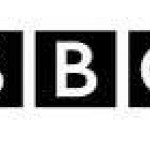- Branża: Broadcasting & receiving
- Number of terms: 5074
- Number of blossaries: 1
- Company Profile:
The largest broadcasting organisation in the world.
A smoke-free zone (or smokeless zone, or smoke control area) is not, in this context, anything to do with cigarettes. It refers to an area, designated by a local authority, where only authorised fuels - for example smokeless fuel, coke, and gas - may be burned. Other fuels may sometimes be permitted when used on specified authorised appliances. Ordinary coal, and wood (other than small amounts of kindling) are prohibited. The zones originated in London after legislation in 1946 in response to terrible smogs but are now very common in towns and cities nationwide.
Industry:Natural environment
Solar panels, usually roof-mounted, use the energy of the sun to generate electricity for home use, with the potential to sell surplus back to the grid. Light shining on a panel of photovoltaic cells creates an electric field across layers of semiconductive material, causing electricity to flow.
Industry:Natural environment
The second lowest level of the atmosphere, extending from about 10km to about 50km altitude. The ozone layer, the part of the earth's atmosphere with the greatest concentration of ozone, forms part of the stratosphere. Because it sits above the troposphere, where most air turbulence occurs, the lower stratosphere is where most commercial airlines set their cruising altitude.
Industry:Natural environment
A device used to measure the volume of water used by a household or business. Billing people for the water they actually use, rather than a fixed annual charge, is increasingly common in the UK, and is regarded as an incentive to users to avoid wasting water.
Industry:Natural environment
Water pressure is the force that pushes water through pipes and determines the rate of flow from your taps. Water companies are required to provide water at a pressure that will reach the upper floors of houses, but where this is a problem, pressure can be improved using pumps. However, devices such as power showers, which use a pump to boost flow for a more powerful shower spray, also greatly increase the volume of water used and the energy required to heat it.
Industry:Natural environment
A watt is a unit of power. Power is the rate at which energy is used, and a watt is equal to a rate of one joule of energy per second. Watts are commonly used when referring to the energy consumption of relatively small things like lightbulbs, while kilowatts (a thousand watts) are used for larger machines. Megawatts (a million watts) are used to measure the electricity generation of power stations. See also kilowatt-hours.
Industry:Natural environment
The state of the atmosphere with regard to temperature, cloudiness, rainfall, wind and other meteorological conditions. It is not the same as climate which is the average weather over a much longer period.
Industry:Natural environment
Acid rain is simply rain with higher than normal acidity. Its main cause is emissions of nitrogen and sulphur compounds from burning fossil fuels to power transport, power stations, forest fires, fertiliser and industry.
Industry:Natural environment
Action that helps cope with the effects of climate change - for example construction of barriers to protect against rising sea levels, or conversion to crops capable of surviving high temperatures and drought.
Industry:Natural environment
